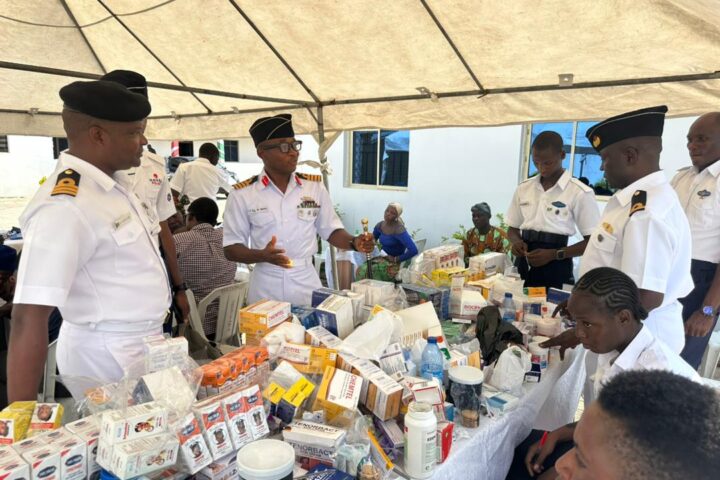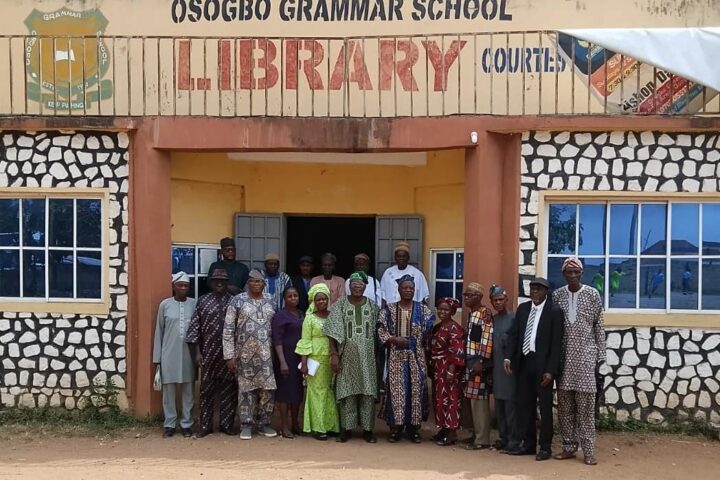Mohammed Shosanya
The Director General, National Agency for Food and Drug Administration and Control (NAFDAC) Prof. Mojisola Adeyeye,has expressed worries over the rate at which Nigerian export products are rejected abroad.
Adeyeye,who expressed this at a press conference in Abuja on Tuesday,implored Nigerian exporters trading in NAFDAC regulated products to obtain necessary certifications for processing of their products.
She said:These could be processed, semi-processed, food-destined for further processing or bulk food such as cocoa, sesame seed, groundnut, melon or grains (e.g., beans, indigenous rice, etc.) tea materials, ogbonno and mellon; drugs, cosmetics, chemicals, agro-chemicals, beverages, fruit juices, and medical devices. All exporters should join hands with NAFDAC and contact the Agency for more information on Single Window Trade (SWT) portal: www.trade.gov.ng.
“They must leave ample time for processing unless their product is already registered (for destination country), the facility already has cGMP certification, and the client has been a regular exporter with good records with NAFDAC. They are all also enjoined to contact NAFDAC website to read up and comply to the stated steps on the guidelines. To NAFDAC’s credit, for hundreds of products whose export process passed through NAFDAC, none has suffered rejection to date.
“Going forward, to stem the worsening situation, no patriot should export any NAFDAC Regulated product without it passing through and being certified of its safety and quality status including full compliance with the destination country government requirements. This is also very important to avert colossal economic loss resulting from the rejection of non-compliant exports by the trading partners”, she said.
She said,the challenge bedeviling the export process of NAFDAC regulated products especially, assuring safety and quality status of food exports in Nigeria has been traced to non-compliance with advisory guidelines established by NAFDAC to encourage participatory exports.
She added:”Almost all exported food products are processed without the statutory testing by NAFDAC. Therefore, it is not surprising that all the items exported without NAFDAC quality control and safety tests are rejected.
Non-utilization of hitherto free laboratory testing by NAFDAC for export samples coupled with the connivance of unscrupulous agents.
“Exclusion of NAFDAC’s requirements for its regulated products in the mandatory pre-shipment inspection in the National Export Supervision Scheme (NESS) as administered by the FGN appointed Pre-shipment Inspection Agents (PIAs).
“Unwillingness of exporters to comply with minimal sanitary and phytosanitary measures required for exports to countries with stringent market access.
“Poor packaging, disregard for importation requirements of trading partners countries.Penchant for sourcing from open markets for exports without any form of minimal safety or quality specifications and unwillingness to invest in pre-export activities that help to ensure sustainable export.
“Disinformation on the roles of NAFDAC in the pre-shipment inspection and verification exercise of container stuffing.
“To ratify all these and as an outcome of NAFDAC recent meeting with FSA, the agency is commencing on six regulatory-measure approaches to address the situation. These include: Immediate inclusion and implementation, as a matter of urgency, of NAFDAC Good Manufacturing Practices (GMP), Good Hygienic Practices (GHP) and Laboratory testings (e.g., mycotoxin, pesticide residue, and heavy metals) certification for the regulated products – food, drug, and others by the National Export Supervision Scheme (NESS) as administered by the FGN appointed Pre-shipment Inspection Agents (PIAs).
“Inclusion of NAFDAC in the CBN Export Proceed (NXP) form processing. I am engaging very soon with the Comptroller General of Customs as the new administrator of the Nigeria Single Window Trade portal to facilitate this.
I had earlier engaged with CBN (Trade and Exchange Division) and Federal Ministry of Finance (Home Finance) on this same matter”.



















